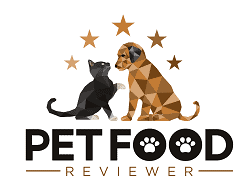You have recently picked up some local smoked salmon from a market or store, or perhaps you are in your kitchen right now preparing it to put on some freshly warmed bread, but your canine best friend is ever close and hoping for a quick bite.
Perhaps you are feeling generous or have a little extra leftover, but before you throw them down a treat, you are wondering whether you can give your dog smoked Salmon.
Well, you aren’t alone, and many other dog owners wonder the same question, but first, there are a few things you need to understand and consider.
Can Dogs Eat Smoked Salmon?
While dogs are capable of eating smoked Salmon, and most could do so with little ill effects, dogs should not eat smoked Salmon.
The main reason that dogs should not eat Salmon is due to the way it is prepared. Smoked Salmon is cured rather than cooked, which involves adding high levels of salt.
While this curing process gives Smoked Salmon its distinct taste, it does not make it an ideal component of a dog’s diet.
This can be amplified by the use of additional seasoning and spices, like Onions and Garlic, which are toxic to dogs.
The other reason that dogs should not eat smoked Salmon is that it is technically uncooked, and raw Salmon can contain harmful bacteria, like Salmonella, or parasites that could be harmful to dogs.
Why Is Smoked Salmon Bad For Dogs?
As we mentioned above, smoked Salmon is cured rather than cooked, and this curing process includes adding large amounts of salt to the fish.
While dogs do need some salt in their diet, the level found in even a small portion of smoked Salmon could push them over their ideal consumption.
While a one-off consumption of salty food is unlikely to have much effect, a consistent diet with higher levels of salt can lead to issues like dehydration, vomiting, diarrhea, seizures, and even sodium poisoning.
Some dogs, in particular, are even more prone to health issues when eating lots of salt, such as dogs with cognitive heart failure or high blood pressure, and have to maintain a consistently low-sodium diet, sometimes even having to resort to prescription diets from a vet.
Secondly, as we touched on, Smoked Salmon is technically raw and, as a consequence, can contain harmful bacteria or parasites that could cause harm to dogs.
Common examples of these could include Salmonella, E. coli, and Listeria, although there are several less well-known examples.
Technically, this risk is very small and is the same risk that humans would put themselves in when they eat uncooked Salmon.
While some dog owners may brush this aside and choose to take this risk, many more prefer to play it safe and avoid feeding their dogs uncooked fish like Smoked Salmon.
What To Do If Your Dog Eats Smoked Salmon?
While many dog owners tend to panic when their dogs eat food they shouldn’t, you probably don’t need to panic if your dog ate a small amount of smoked Salmon.
Most dogs will have little to no reaction to a small portion of smoked Salmon other than being a little more thirsty than usual.
However, if your dog were to gain access to a large amount of smoked Salmon at once, you may want to take some more precautions.
Dogs may experience some classic digestive upset symptoms when eating lots of smoked Salmon, such as vomiting, diarrhea, or discomfort.
We’d recommend you closely monitor a dog that has eaten a large amount of smoked Salmon for the next 24-48 hours to see if they develop any symptoms.
You may also want to ensure that they have a sufficient supply of water available to them when they desire.
If they do experience severe or consistent symptoms during this period, we recommend you contact your veterinary professional for specific advice and guidance on what to do next.



